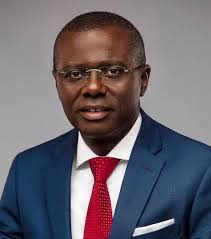
The recent hike in the interest rates, as announced by the monetary policy authorities, may signpost a deeper crises for the nation’s private sector, the Lagos Chamber of Commerce and Industry (LCCI), has warned.
The Chamber, in its reaction to the recent interest rates hike, on Wednesday, warned that such hike would throw the private sector to more profound loan repayment crises.
The Chamber’s Director General, Dr. Chinyere Almona, added that the hike might also lead to a reduction in demand since it would weaken the purchasing power of Nigerians, and, in consequence, lead to lower industrial production and eventual loss of jobs.
The Chamber also reiterated its earlier position on the need to implement targeted fiscal and monetary interventions, capable of boosting food production , lower the cost of doing business, overhaul transport infrastructure, and create a more enabling environment, among others.
“Specifically, the Chamber had recommended that the CBN apply an import duty exchange rate lower than the official rate at a fixed rate for a determined period.
“This is expected to help businesses plan better and serves as a palliative that benefits a high proportion of the populace. Earlier in the year, we called on the government to implement specially targeted support for strategic industries,” the business advocacy body stated
LCCI also stressed the need to take more decisive action to stabilise prices and support the citizens’ purchasing power, as inflation continues to defy various interventions by monetary and fiscal authorities.
“With several hikes in the past months, we are yet to record a significant impact on stabilizing prices. The twin burden of high inflation and interest rates is overheating the economy and causing increased volatility and uncertainty,” the Chamber noted.
On the ongoing minimum wage debate, the Chamber called on the government to plan for massive commitment of resources to implement the new wage, at the end of the debate, since the discourse represents the next levels of government recurrent spending that may further fuel inflationary pressures into the second half of the year.








Comments